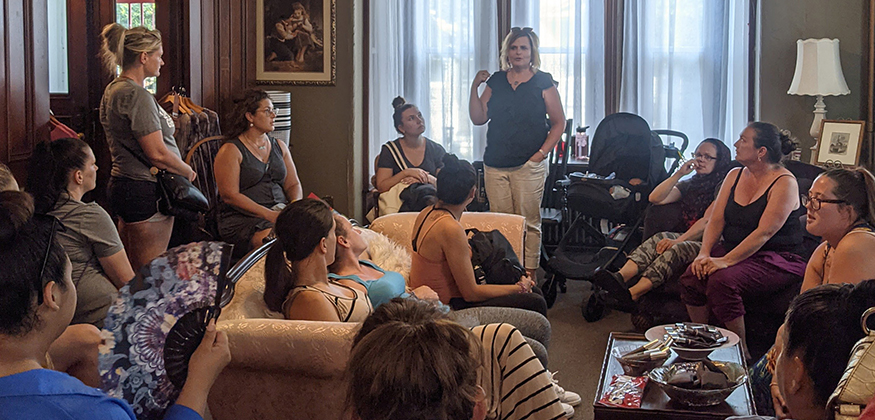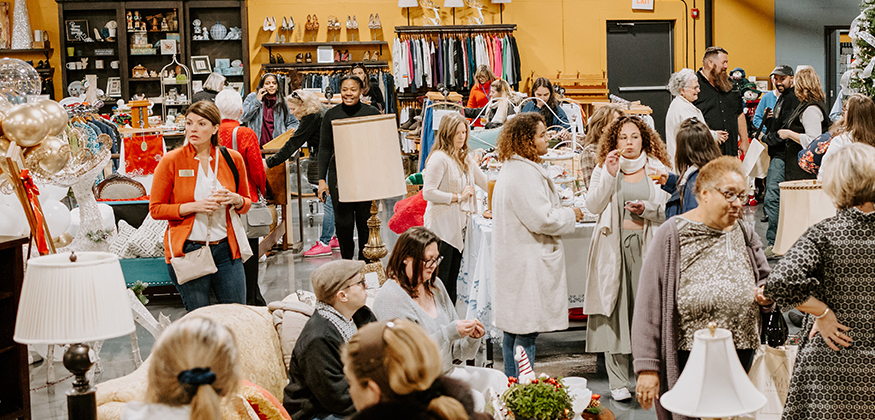Healing a Cynical Reputation
 East Coast International Church proclaims the gospel to the unevangelized marginalized.
East Coast International Church proclaims the gospel to the unevangelized marginalized.
Massachusetts is atop the list as one of the least religious U.S. states. Yet East Coast International Church (ECIC) in Lynn, an Atlantic coastal city near Boston, thrives by shining God’s mercy, healing broken communities, broken homes, and broken hearts.
Ministering in the Bay State for more than three decades, ECIC’s lead pastor Kurt L. Lange, 52, believes New England gets a bad rep as the “preacher’s graveyard.”
“The people are not hardened,” he says. “It’s just hard and persevering work building long-term relationships and proving yourself.”
Lange characterizes the spiritual climate as pre-Christian, as opposed to post-Christian.
“People are not angry against the Church,” he observes. “The Church just is not on their radar. They don’t reject a gospel they have never heard of.”
Eighty-five percent of ECIC’s more than 400 multiethnic congregants in Lynn, plus a satellite group in Revere, had no previous church background.
ECIC proclaims the gospel to a mostly marginalized population: the homeless, substance abusers, the previously incarcerated, and victims of human trafficking.
Lange is a fourth-generation AG minister who grew up in Attica, Indiana, where his father Harvey L. Lange pastored The Worship Church (formerly Attica Assembly of God). Kurt relishes the story about how this humble rural church opened a homeless shelter and food pantry decades ago to reach the poorest of the poor.
He joined Calvary Christian Church in Lynnfield, Massachusetts, as staff youth pastor in 1992 while a senior at Gordon College. He earned a bachelor’s degree in youth ministries in 1993.
At Calvary, he sensed God calling him to urban ministry in nearby Lynn, a multiethnic city of 101,253 residents 3.7 miles north of Boston’s city line. Lynn has a solid immigrant base from Central and South America, Asia, and Africa, with a combined 36% of inhabitants born outside the U.S.
Lange and his wife, Jen, and a core group from Calvary Church, launched ECIC in 2001. The church rented Sunday worship space in an elementary school for nine years.
In 2009, ECIC bought an abandoned four-story, 114-year-old, 36,000 square-foot industrial building for $500,000 in downtown Lynn, next to a busy commuter rail and bus station. Volunteers provided materials and labor for the extensive renovations.
The property reflects ECIC’s multiuse philosophy. It houses the principal worship sanctuary, Land of a Thousand Hills Coffee Company, The Haven Project, children’s ministry programs, and church offices. Current plans call for building 24 apartments on the top two floors for low-income residents.
ECIC created The Haven Project, offering gap services to unaccompanied homeless young adults, ages 17-24. It has 12 beds and serves more than 200 clients annually. Most government-sponsored juvenile family services expire at age 18, leaving clients exposed to homelessness and exploitation. They may couch-surf with friends or relatives temporarily, sleep on park benches or in shelters, or end up alone on the street.
Pablo Acosta, 52, a volunteer for various ECIC outreaches, knows the pain of fallout from revolving-door reoffending. He spent many nights sleeping in doorways and back alleys because of substance abuse.
“Being homeless, I felt worthless with no hope,” he recalls.
He gave his life to Christ in a Salvation Army recovery program and discovered ECCI while living in a sober house in 2020. Now drug-free and a case manager with Boston Healthcare for the Homeless agency, he calls ECIC his home.
“We take church outside to the streets, giving boxes of food and talking to folks about the gospel of Jesus Christ,” he says.
Jen Lange, 51, manages At The Mansion ministries with her daughter Kyla, 21. Located in an estate house built in 1877 in downtown Lynn, the program provides a sanctuary for equipping and empowering women recovering from all forms of sexual exploitation and trafficking.
Jen recently launched The Loft at Stetson, a boutique consignment and thrift shop in a former downtown warehouse and nightclub.
“We hire women in recovery coming out of prison trying to restart their lives,” she says. “We also pay above minimum wage.”
Many of these women face complicated scenarios trying to resume normal life after incarceration: keeping court and parole appointments, medical visits, obtaining driving licenses, and finding safe places to live.
The 10,000 square-foot Loft floor plan offers a high-end and welcoming shopping experience for clothing, home goods, furniture, appliances, and used books. Women starting new jobs or needing a bed or dishes for an apartment find a safe network.





